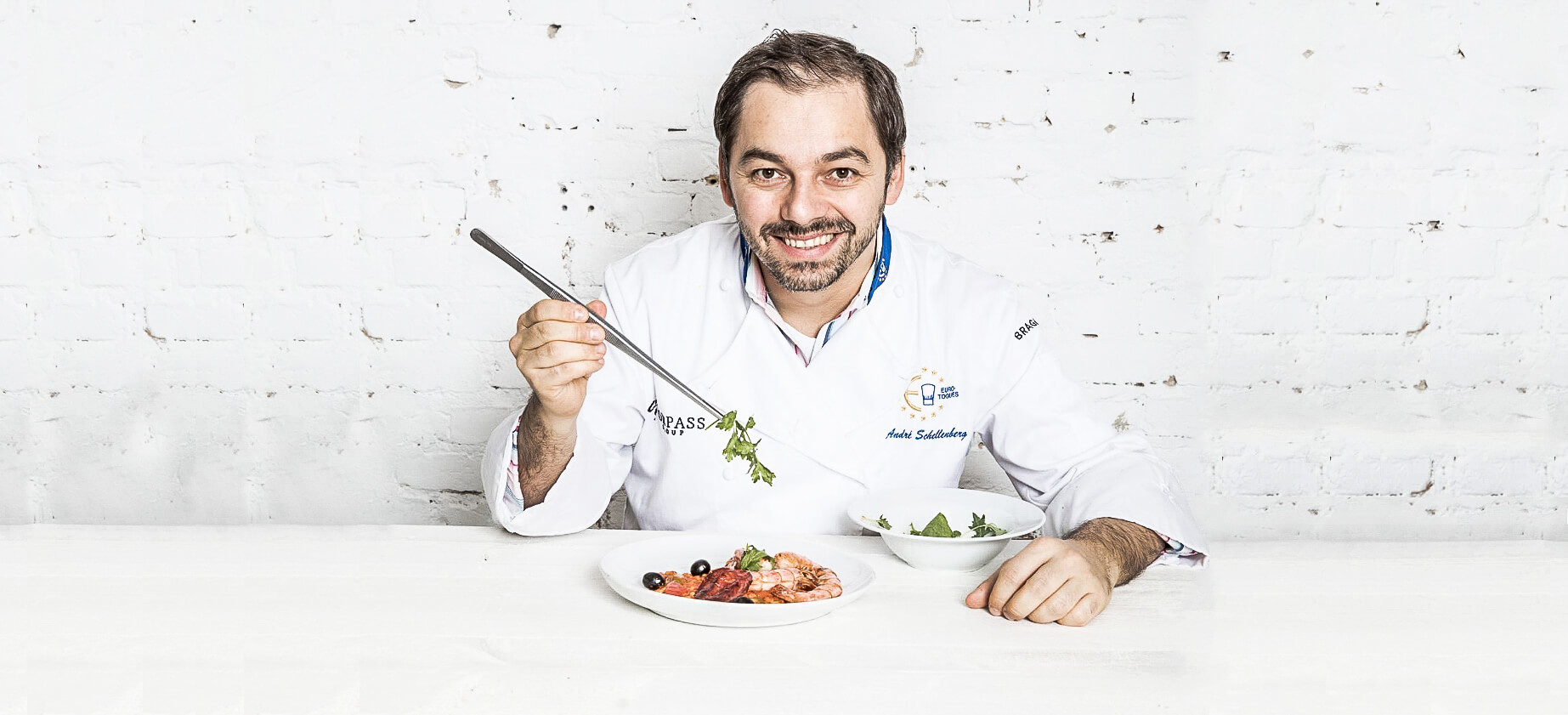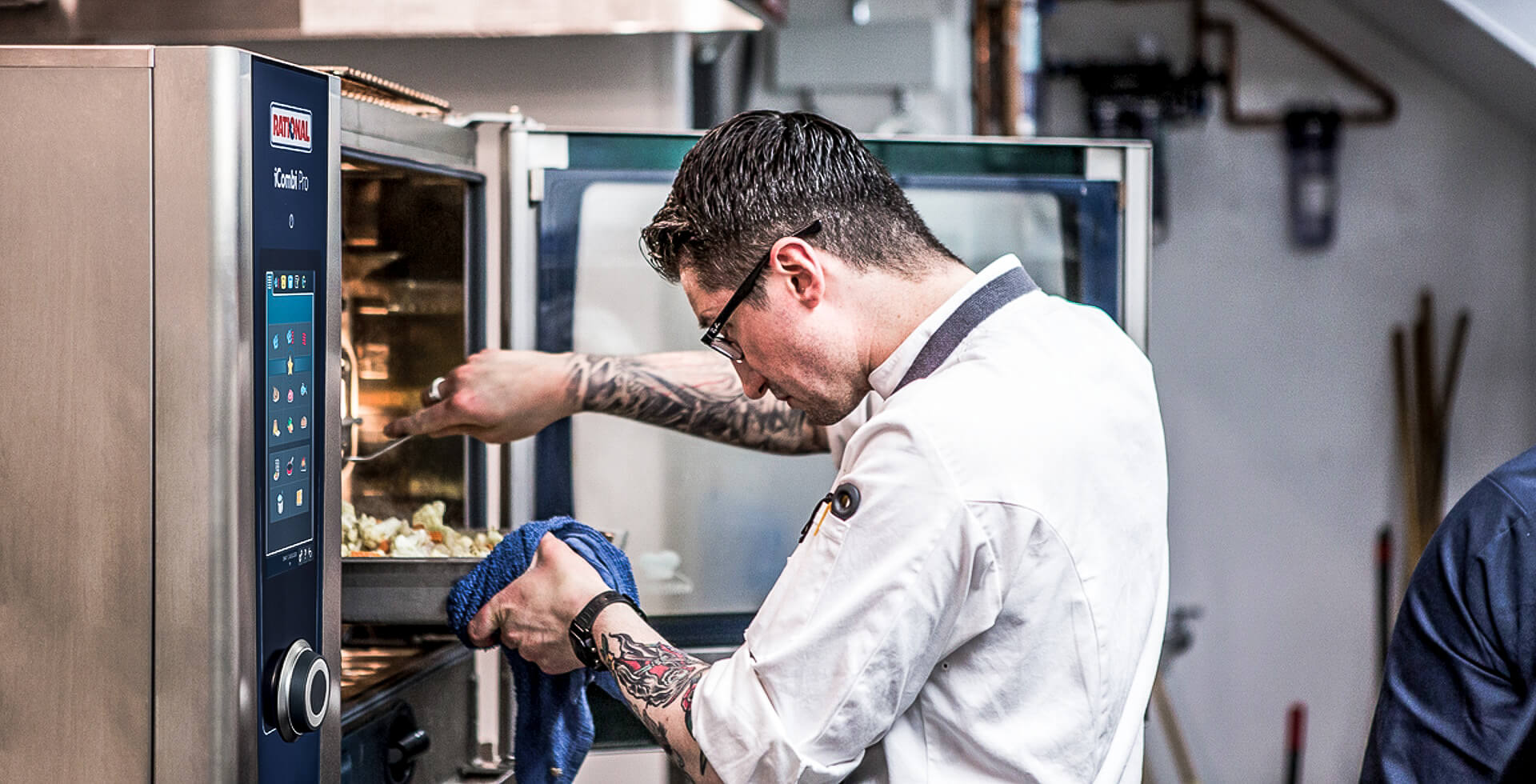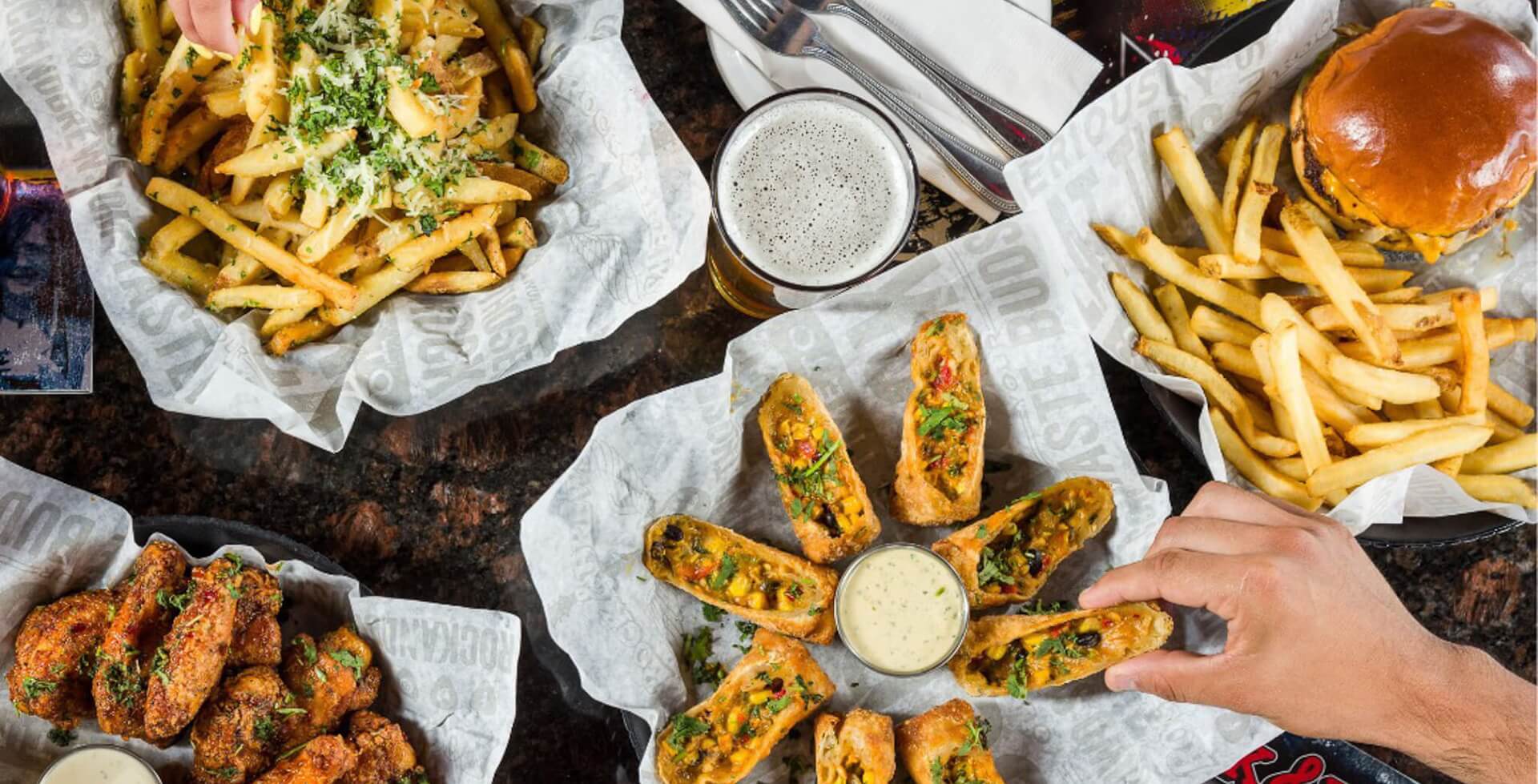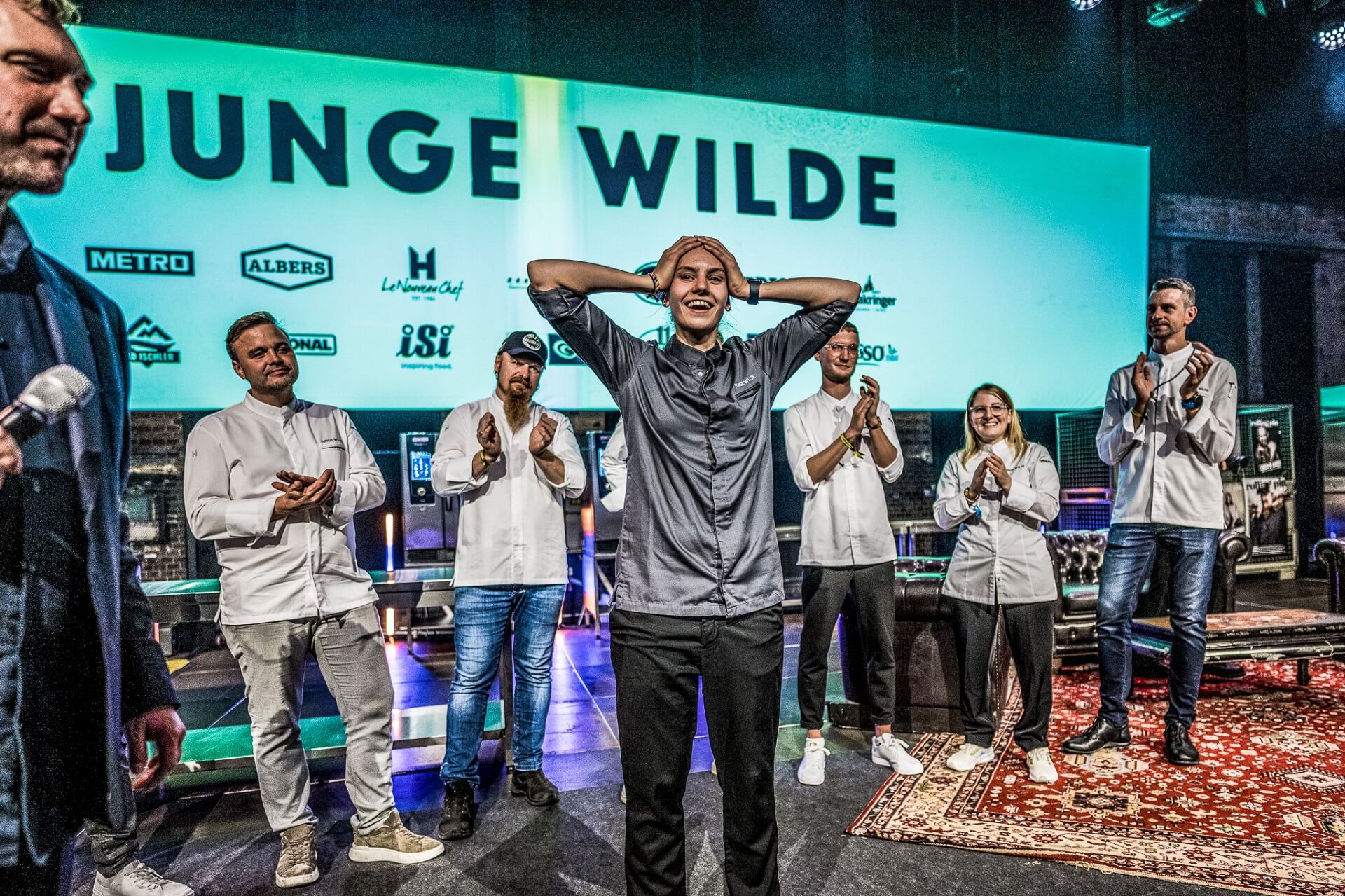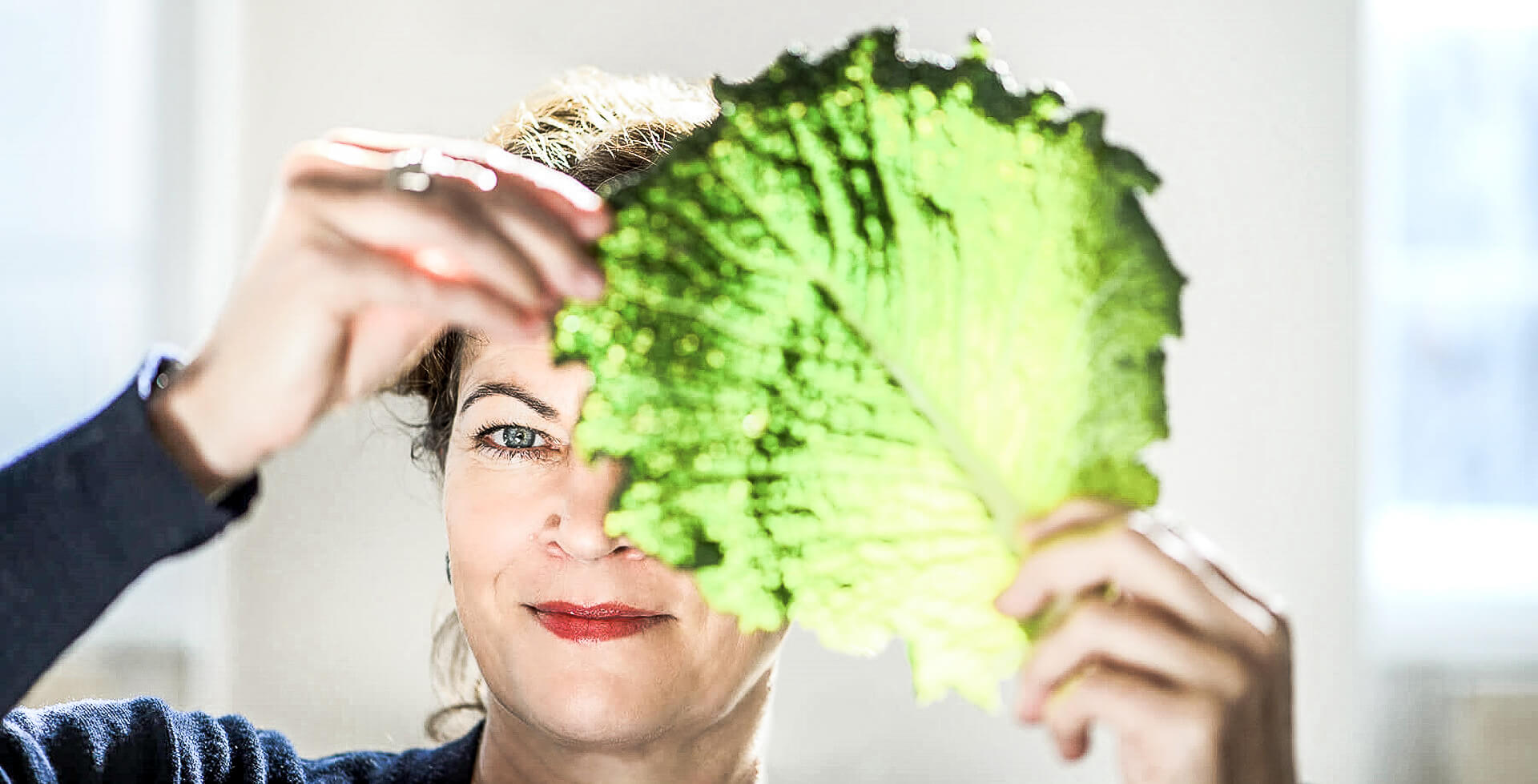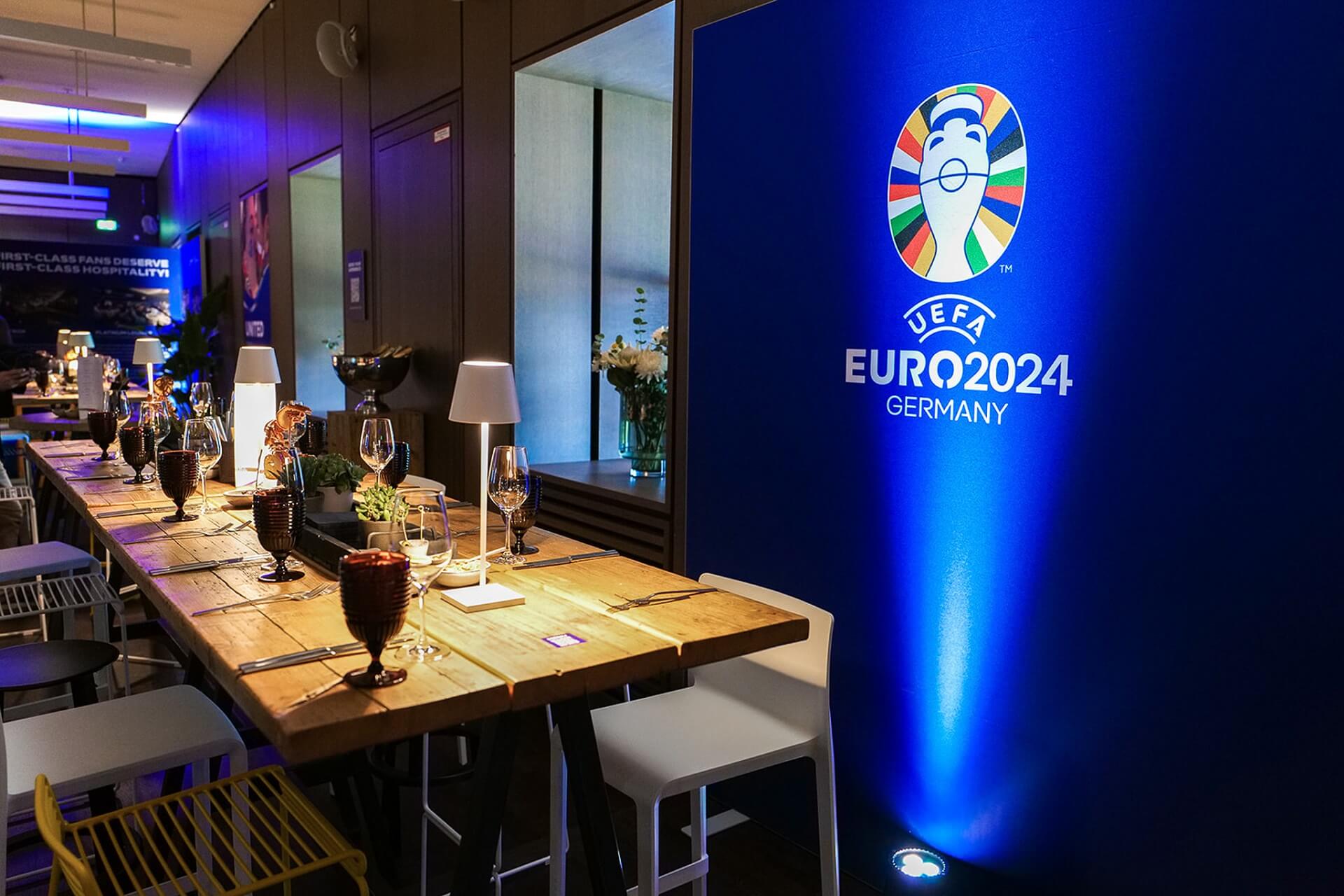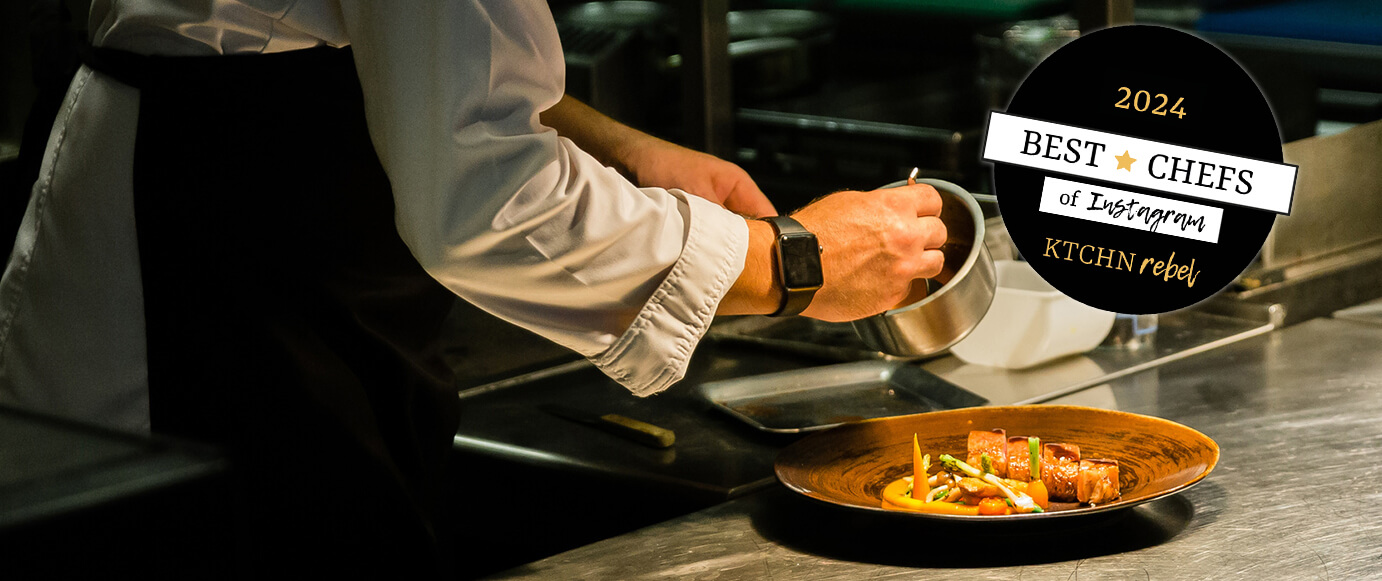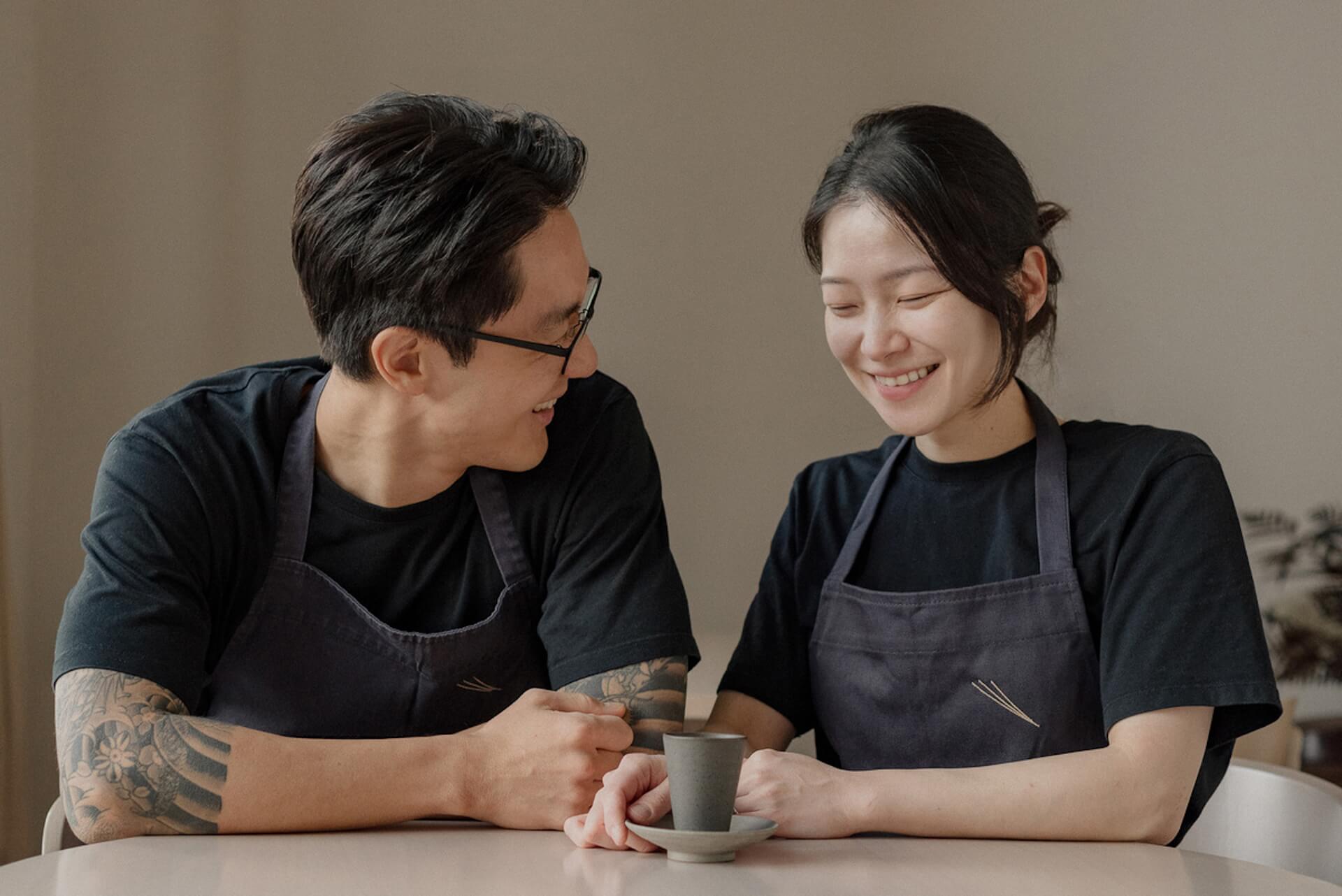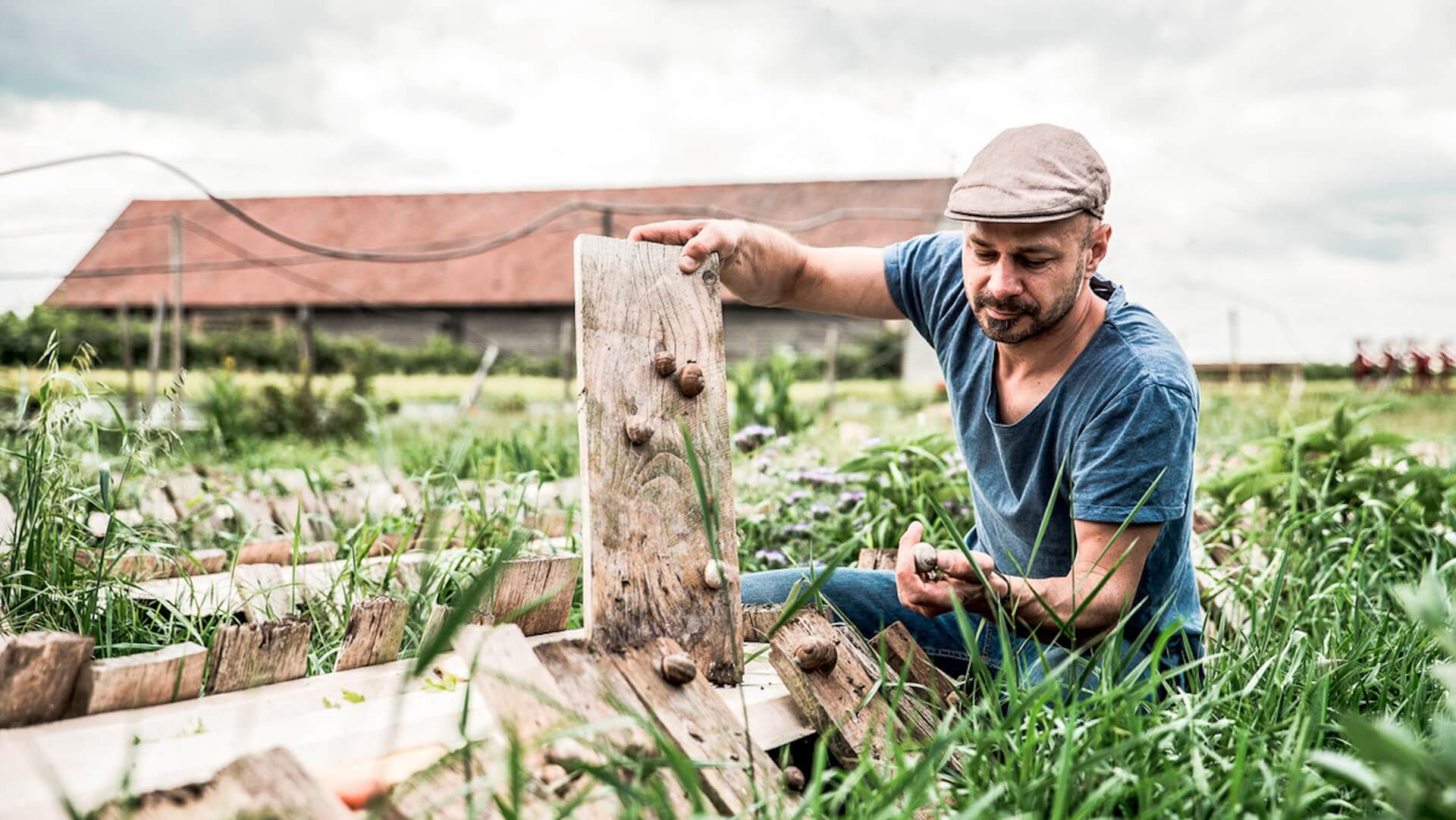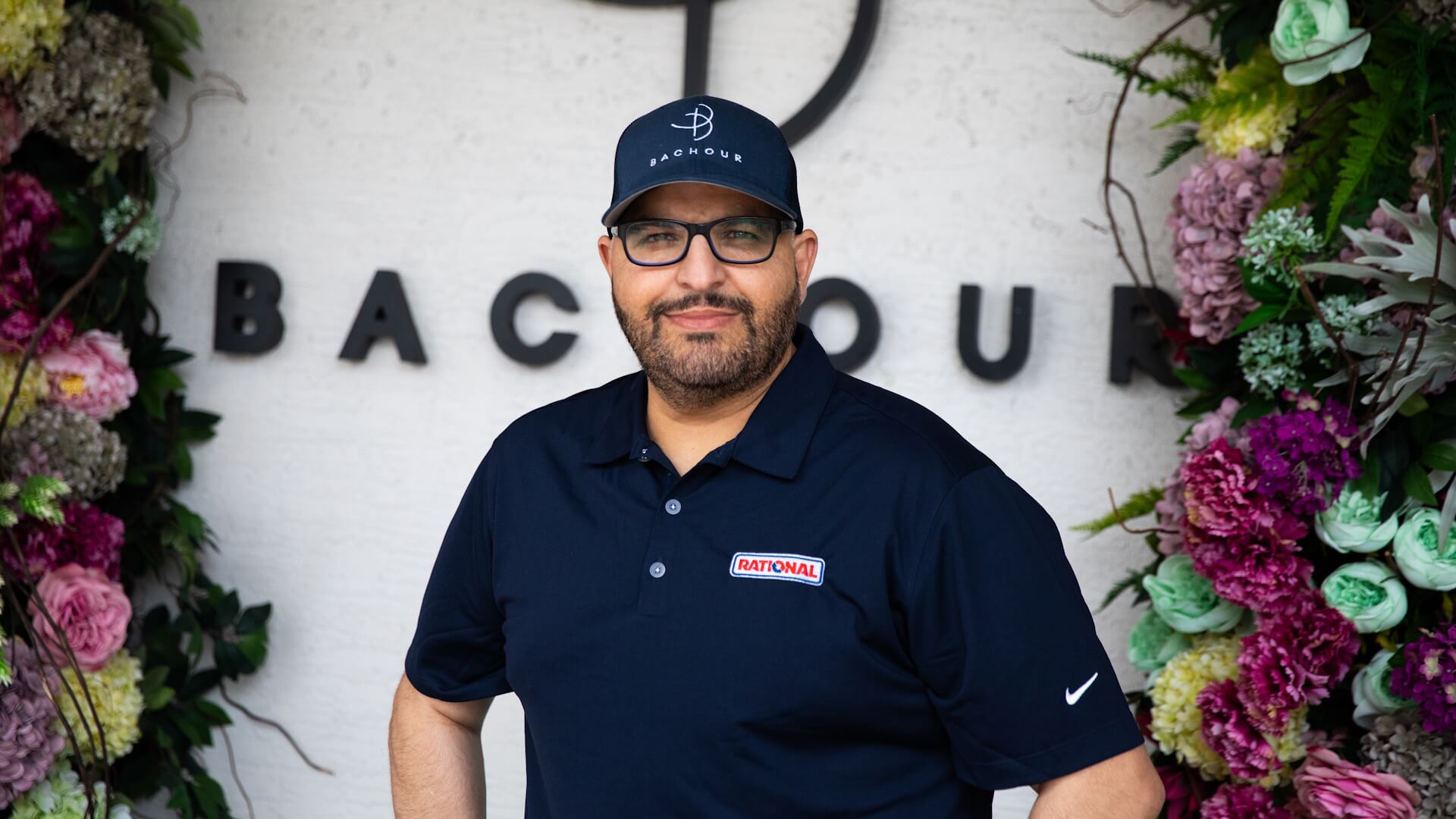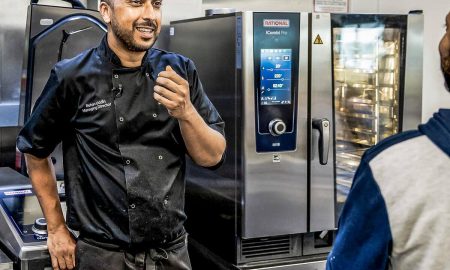André Schellenberg, a trained professional chef and hotel manager, is the culinary director of Compass Group Germany along with its subsidiaries. Read on to find out where Schellenberg gets his inspiration, and learn what he told us about the food trends of tomorrow.
Where do you get your ideas for new dishes?
Schellenberg: I enjoy traveling – my career path has taken me through quite a few international stations. My own experiences aren’t the be-all, end-all, though. When I’m tasting new ideas, I really like getting young people’s opinions and advice – they’re the customers of the future. And sometimes their tastes are completely different to mine! I also get a lot of inspiration from things I see on social media or wherever, even if they don’t have anything to do with food. Actually, I’m pretty much always thinking about new food concepts.
Based on what your customers are requesting, what food trends do you see on the horizon?
Schellenberg: Healthy eating is definitely a mega-trend. And in the future, catering concepts will need to be adjusted to fit the way our everyday lives are changing: not everyone has the same working hours anymore, and there always needs to be something available for everyone. For example, breakfast is often served all day long now. We’re continually expanding our breakfast options at our restaurants as well.
What do you go by when you’re creating your menus?
Schellenberg: I have to listen to the next generation. And offer variety. Nowadays, we have customers from all over the world. People from different cultures have different expectations. Vegetarian and vegan options are becoming more and more important. Authenticity, too. Sustainability is important as well. We need components that can still be used the next day. That helps us avoid waste.
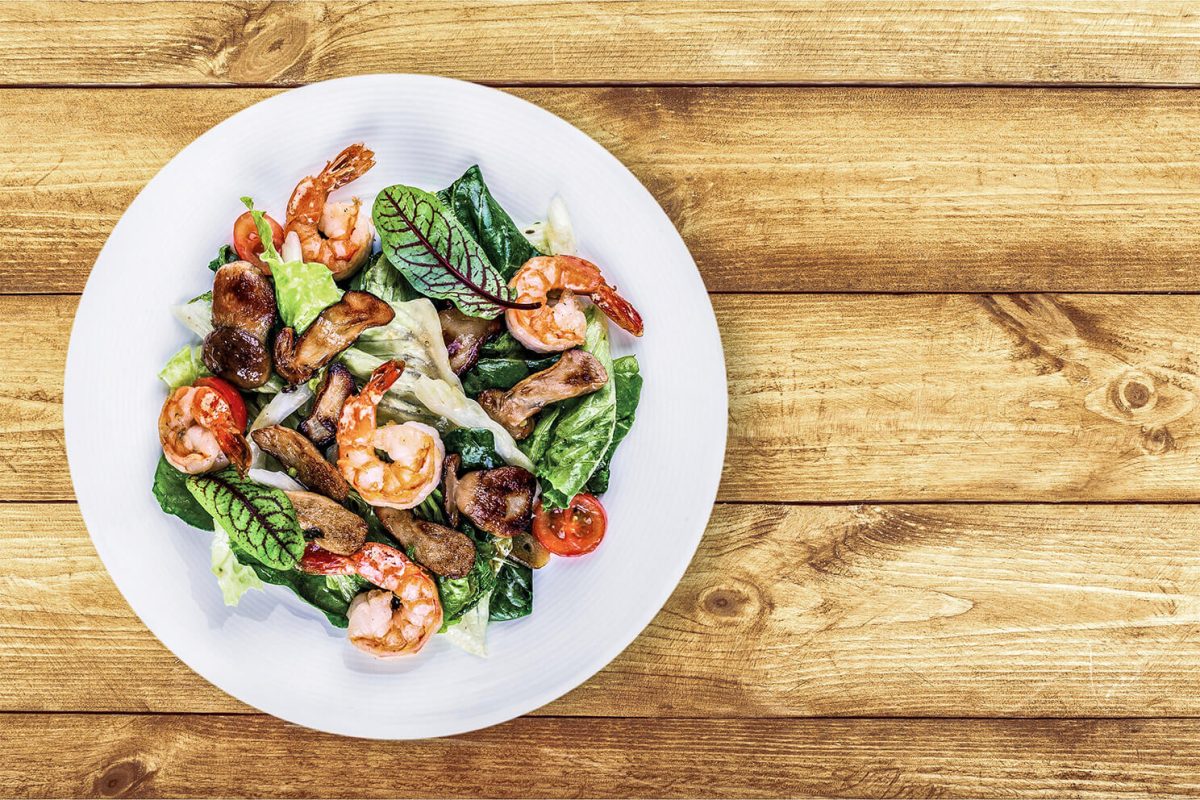
Image: Compass Group
You’ve started offering a new, healthy food concept called Vitalien. What’s that about?
Schellenberg: They’re healthy bowls with superfoods, all 700 calories or less, nothing deep-fried or sauteed in oil. Presentation has become a lot more important – everything has to be Instagram-ready. And customers are happy to pay more for a bowl than they would for the same food served on ordinary plates.
Can you give us some specific examples?
Schellenberg: One popular option is the Finest Falafel bowl: falafel, cottage cheese, smoky lemon dressing, grated raw zucchini, and corn on a bed of couscous. One interesting aspect is the combination of cold and warm components, which is growing in popularity. Plus, it’s a vegetarian meal. Young people are particularly big fans!
How do you make your concepts feasible in practice, so that companies can implement them as effectively as possible?
Schellenberg: That’s a matter of experience. But we also work closely with on-site staff. Operations managers’ feedback is important to us. We ask them before we work up a concept. The on-site staff have to be 100% behind our concepts. We have to win them over!

Image: Compass Group
So what kinds of things are you planning right now at your test kitchen?
Schellenberg: More meatless dishes. Vegan food is in right now, too. In the future, we plan to always have two vegetarian or vegan options available in our company lunchrooms. Modular ideas are going to play a bigger role, too – for example, having the option to order a dish with or without meat. People like to choose things for themselves! But you also have to find the right industry providers, because trained kitchen staff are becoming a rarity. We’re in constant dialogue with the industry.
How about the future? What will company cafeterias be like in ten years?
Schellenberg: Digitized payment options are going to be a major topic. Pop-up restaurants are going to become more common, too. The story behind the food is becoming important, partly thanks to social media. People want to be able to tell their friends about the great meal they had at work!
Recommended articles:
Catering: Reducing waste, controlling costs and focusing on staff retention are key to success
Staff canteens need to be the heart of the company


